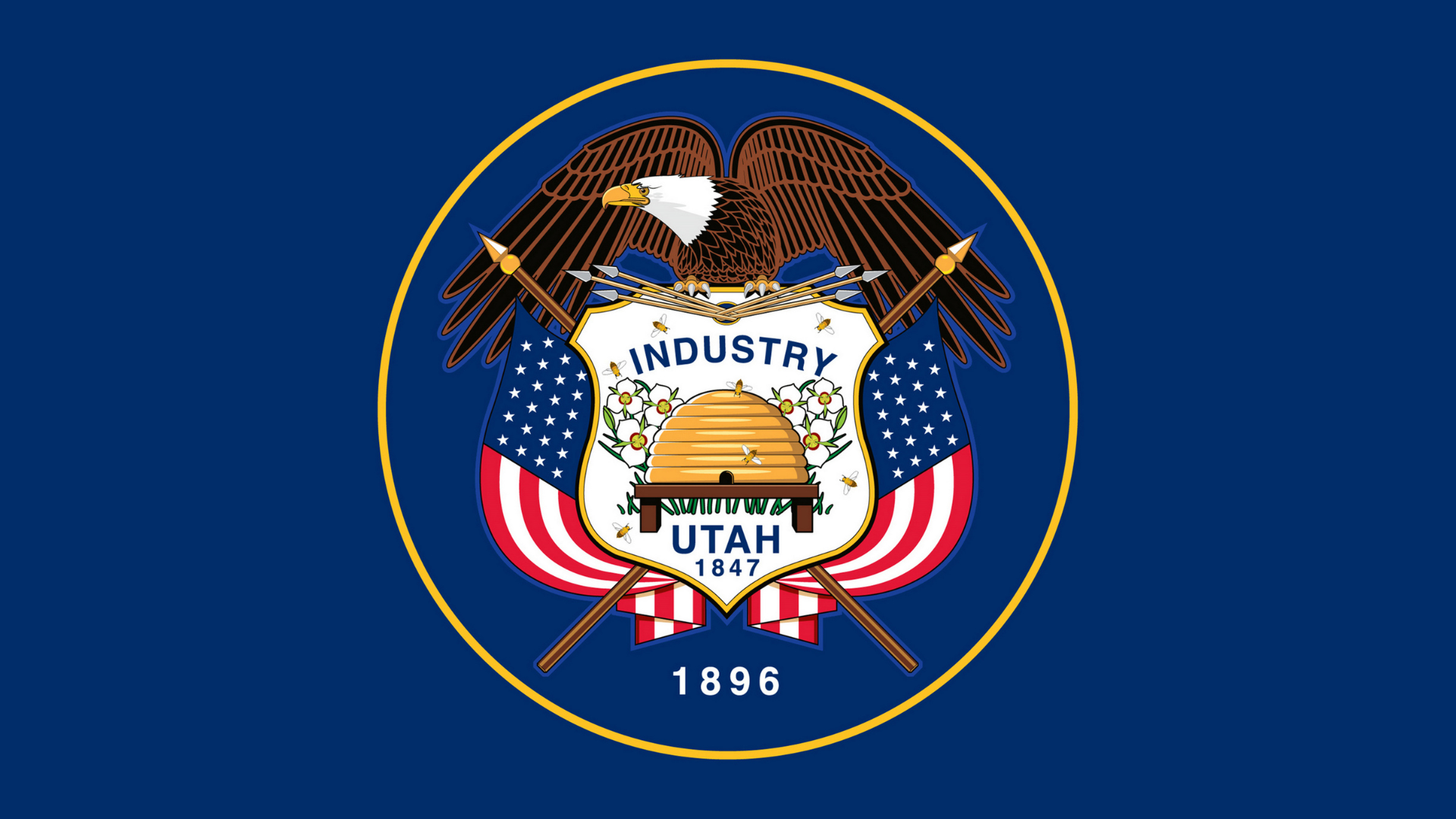Utah
Explore the advantages of the US State of Utah as a jurisdiction for Decentralized Autonomous Organizations (DAOs).

Updated 27th August 2023*
This post is part of our research on DAO-friendly global jurisdictions.
Utah Limited Liability DAOs (LLDs) (Utah DAO Act)
https://le.utah.gov/~2023/bills/static/HB0357.html#48-5-101
Overview of Jurisdiction:
Utah DAO Act which includes the framework for the establishment and regulation of decentralized autonomous organizations (DAOs) under the state law of Utah. Here are some key points:
- Formation (ref: 48-5-201): At least one individual, acting as an organizer, must submit a certificate of organization to the division, including details such as the name of the DAO, the organizer's name and address, the legal representative's name and address, and other information as specified by Subsection 16-17-203(1). The DAO name should comply with Section 48-3a-108.
- Compliance (ref: 48-5-201): The DAO must provide evidence to the division that it meets the following requirements: deployment on a permissionless blockchain, a unique public address, software code that is publicly available and quality assured, and a graphical user interface with specified features. The DAO should have a decentralized governance system, at least one member, a communication mechanism, and a dispute resolution mechanism.
- Limited Liability (ref: 48-5-202): Members of the DAO are generally only liable for their committed contributions and are not personally liable for the DAO's obligations or other members' wrongful actions. Exceptions apply if the DAO refuses to comply with a judgment, order, or award, or if a member commits a tortious act.
- By-laws (ref: 48-5-203): The DAO must adopt by-laws that are written in plain terms and are consistent with the law. These by-laws establish the internal organization and procedures for the DAO.
- Annual Report (ref: 48-5-204): The DAO is required to file an annual report with the division, which includes the DAO's name and the information required by Subsection 16-17-203(1). This report must be filed every 12 months after the DAO has been issued a certificate of organization.
- Membership and Voting Rights (ref: 48-5-301, 48-5-302): The DAO's by-laws may create different classes of member participation rights. Where governance powers are given to token holders, these holders are considered members from the time the ownership of the tokens is established.
- Administrators (ref: 48-5-305): Unless required by the DAO's by-laws, an administrator (such as a board of directors or a trustee) is not required. In the absence of an administrator, all powers and tasks are vested in the DAO members.
- Legal Representation (ref: 48-5-306): The DAO must retain a legal representative to undertake tasks that cannot be achieved on-chain. This representative is not required to reside in Utah and is not personally liable for acts performed on behalf of the DAO.
- Fiduciary Duties (ref: 48-5-307): A member, participant, or legal representative does not inherently have fiduciary duties towards each other or third parties unless explicitly declared or stipulated in the by-laws.
- Asset Subscription and Payment (ref: 48-5-401): No minimum capital requirements apply to the DAO. If the DAO wishes to maintain a minimum amount of capital, the by-laws should specify the rules for subscription and payment.
Legal Frameworks:
Requirements for Establishing a DAO
- Formation (Section 48-5-201): At least one person (known as the "organizer") must file a certificate of organization with the division, which includes details such as the DAO's name, address, and purpose, as well as the organizer's contact information. The DAO must also have a legal representative, whose name and address are included in the certificate.
- Compliance (Section 48-5-201): To be recognized as a DAO under this act, the organization must meet certain technical requirements. This includes being deployed on a permissionless blockchain, having a unique public address, making the DAO's software code publicly available, and having a graphical user interface.
- By-laws (Section 48-5-203): The DAO must have by-laws, which are essentially the rules that govern the organization. These by-laws must be written in a way that is understandable and are subject to certain legal requirements.
- Annual Report (Section 48-5-204): The DAO must file an annual report with the division, which includes the same information that was included in the certificate of organization.
Legal Protections Offered by the Utah DAO Act
- Limited Liability (Section 48-5-202): Members of the DAO are not personally liable for the obligations of the DAO, nor are they liable for the actions of other members. This liability is limited to the extent of their contributions to the DAO.
- Membership and Voting Rights (Sections 48-5-301 and 48-5-302): The DAO's by-laws can establish different classes of membership rights. Additionally, if the DAO's governance powers are given to token holders, those token holders are considered members and have voting rights.
- No Requirement for Administrators (Section 48-5-305): Unless the DAO's by-laws require it, there's no need for an administrator like a board of directors. In the absence of an administrator, all powers are given to the members.
- Legal Representation (Section 48-5-306): The DAO must have a legal representative who can act on behalf of the organization for tasks that can't be performed on-chain. This representative does not have to reside in Utah and is not personally liable for their actions on behalf of the DAO.
- Fiduciary Duties (Section 48-5-307): Unless explicitly stated in the by-laws, members, participants, and the legal representative of the DAO don't have fiduciary duties towards each other or third parties. This means that they are not legally required to act in the best interests of the DAO or its members.
- Asset Subscription and Payment (Section 48-5-401): There are no minimum capital requirements for a DAO. If the DAO decides to have a minimum capital requirement, the by-laws should detail how members can subscribe and pay for their contribution.
Remember, this analysis is based on the legal framework outlined in the Utah DAO Act. It's always recommended to consult with legal professionals before establishing a DAO or any other legal entity.
Benefits and Challenges:
The Utah DAO Act brings about several benefits and challenges that are worth noting:
Benefits
- Legal recognition: The Act provides DAOs with a legal framework to exist and operate within Utah. It gives a DAO the same rights and abilities as a traditional LLC, which can open up new opportunities and possibilities.
- Limited Liability: Similar to an LLC, members of a DAO are given limited liability protection. This means that members are only liable up to the extent of their contributions to the DAO, protecting personal assets from the DAO's potential failures.
- Flexibility: The Act allows for a significant degree of flexibility in terms of how the DAO can be structured. The bylaws of the DAO can outline membership rights, voting procedures, asset distribution, and other organizational matters.
- Automation: By leveraging blockchain technology, many operations of the DAO can be automated, reducing administrative overhead and increasing efficiency.
Challenges
- Regulatory uncertainty: Although the Act provides legal recognition for DAOs in Utah, it's unclear how they might be treated by federal agencies or courts, or how they might be recognized in other states or countries.
- Technological risk: Since DAOs rely on blockchain technology, they are susceptible to all the risks associated with it, such as cybersecurity threats, coding errors, and other technical issues.
- Governance challenges: DAOs face numerous governance issues, such as decision-making inefficiencies, the potential for malicious actors to game the system, and the possibility of disagreements leading to "forks."
- Legal representative requirement: The Act requires a legal representative for tasks that can't be performed on-chain, which might pose a challenge for fully decentralized organizations.
- Accessibility and comprehension: DAOs and blockchain technology can be complex and difficult for the average person to understand, which could limit participation and increase the risk of manipulation or fraud.
- Fiduciary duty concerns: The lack of fiduciary duties could lead to unethical or harmful behavior since members and legal representatives aren't legally required to act in the best interests of the DAO or its members.
In conclusion, while the Utah DAO Act is a significant step towards the legal recognition and regulation of DAOs, it also presents new challenges that need to be considered and addressed.
Case Studies:
There is no active DAO in Utah corresponding to the DAO Act
*Please note that the information in this post is for informational purposes only. It should not be construed as legal, tax, investment or other advice.*
